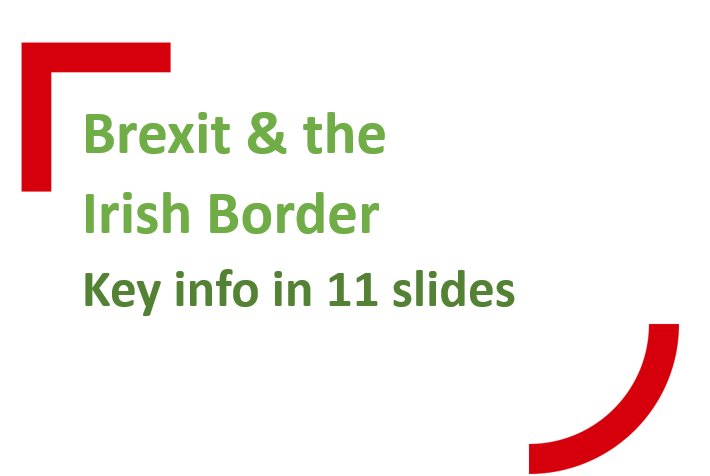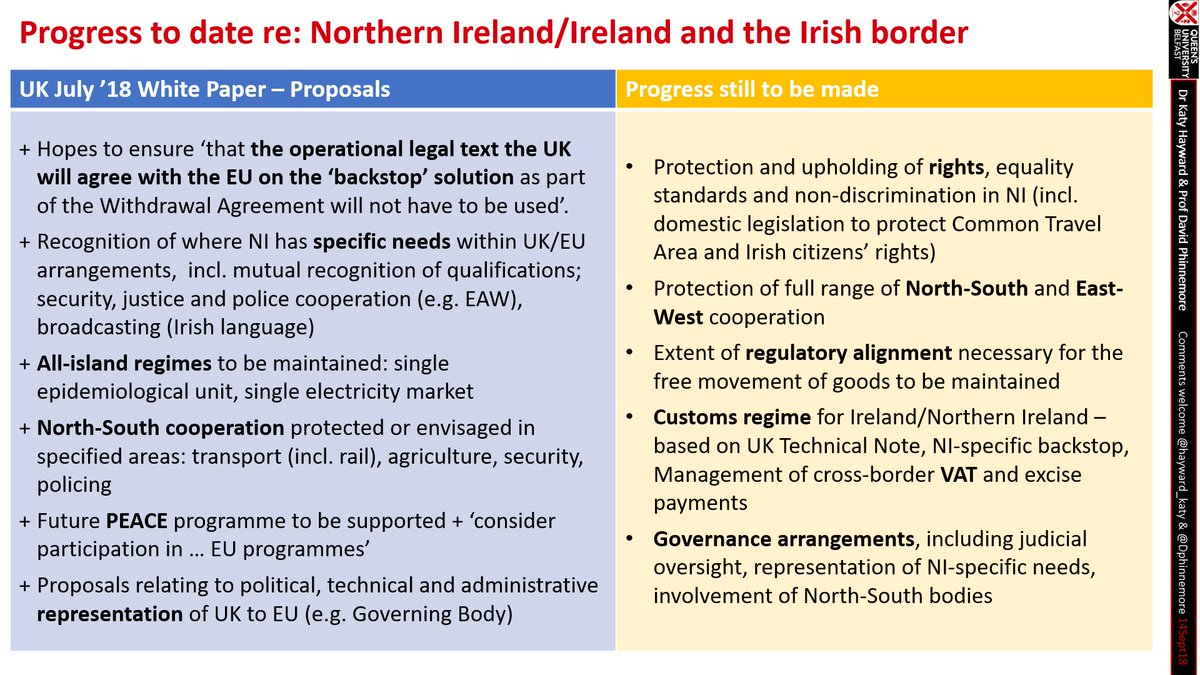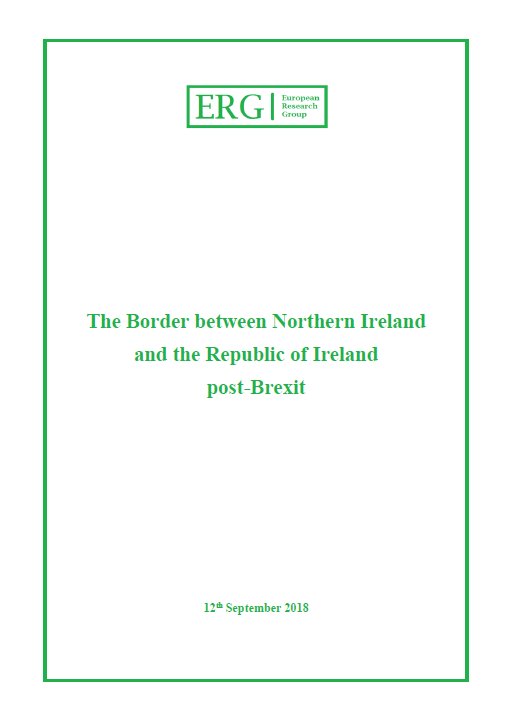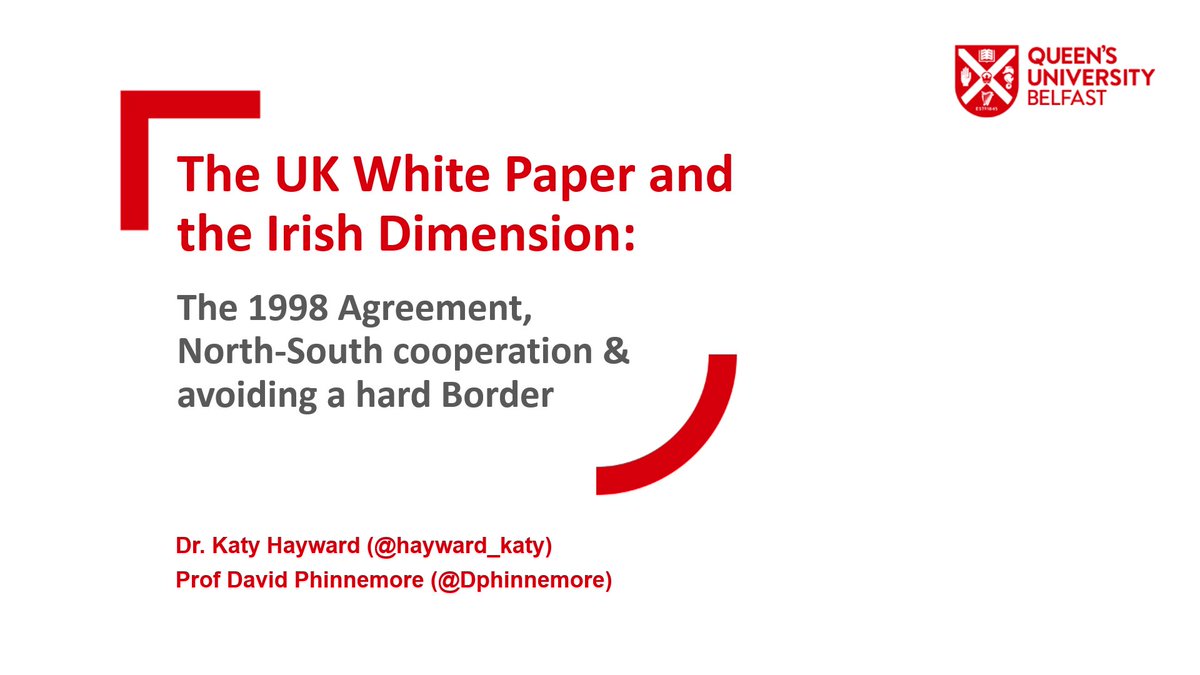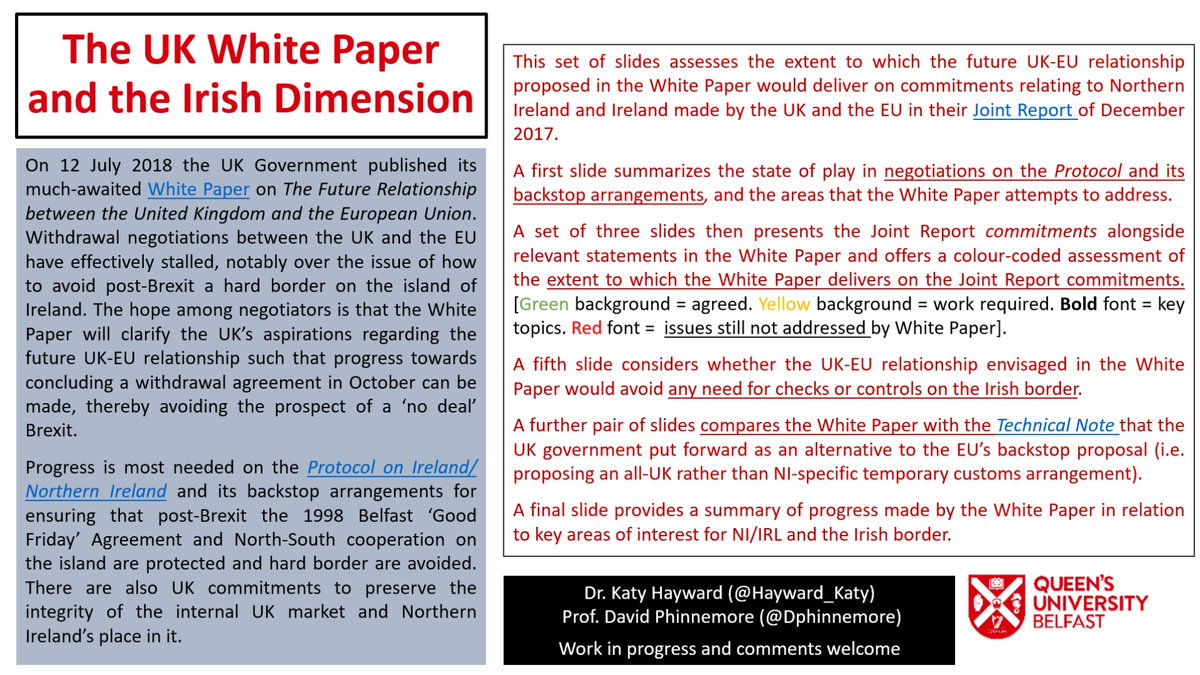*Brexit at the Border: Voices from local communities in the Central Border Region of Ireland/Northern Ireland*
An initiative by @QUBelfast & @europe_icban to gather data on the immediate & anticipated effects of #Brexit for those living on the #Border
qub.ac.uk/brexit/Brexitf…
1/10
An initiative by @QUBelfast & @europe_icban to gather data on the immediate & anticipated effects of #Brexit for those living on the #Border
qub.ac.uk/brexit/Brexitf…
1/10
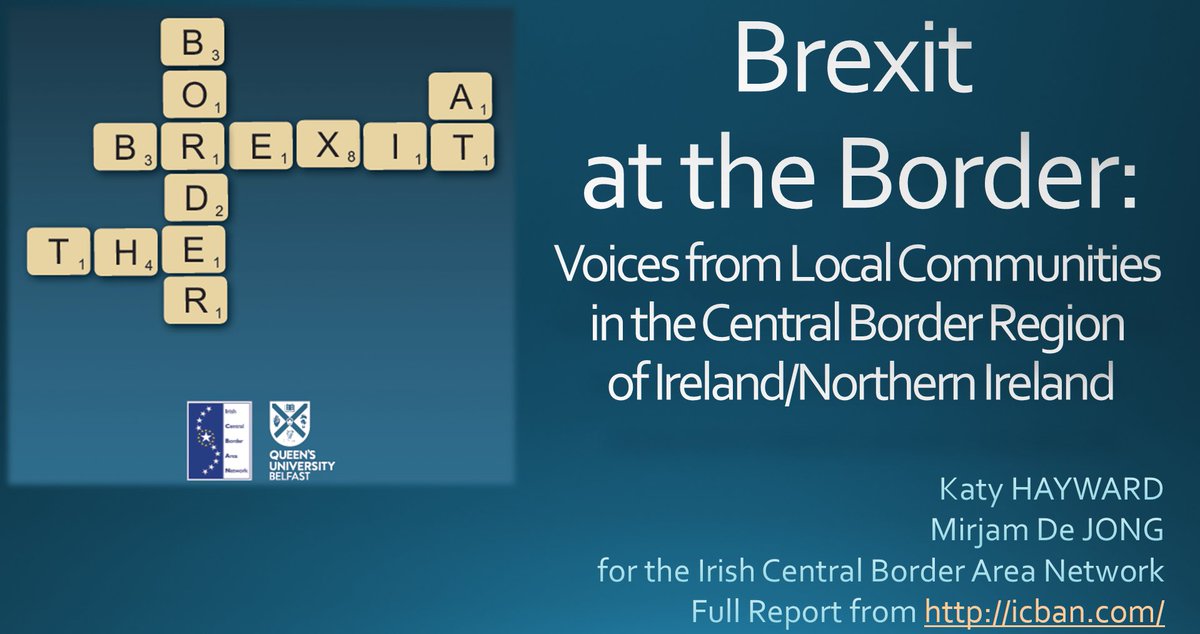
Here are some of the key findings from the report in slide form.
First an overview of the study itself:
Rich qualitative data (online survey & focus groups) gathered across the Central Border Region. Detailed examples & viewpoints heard from people on both sides of #border.
2/10
First an overview of the study itself:
Rich qualitative data (online survey & focus groups) gathered across the Central Border Region. Detailed examples & viewpoints heard from people on both sides of #border.
2/10
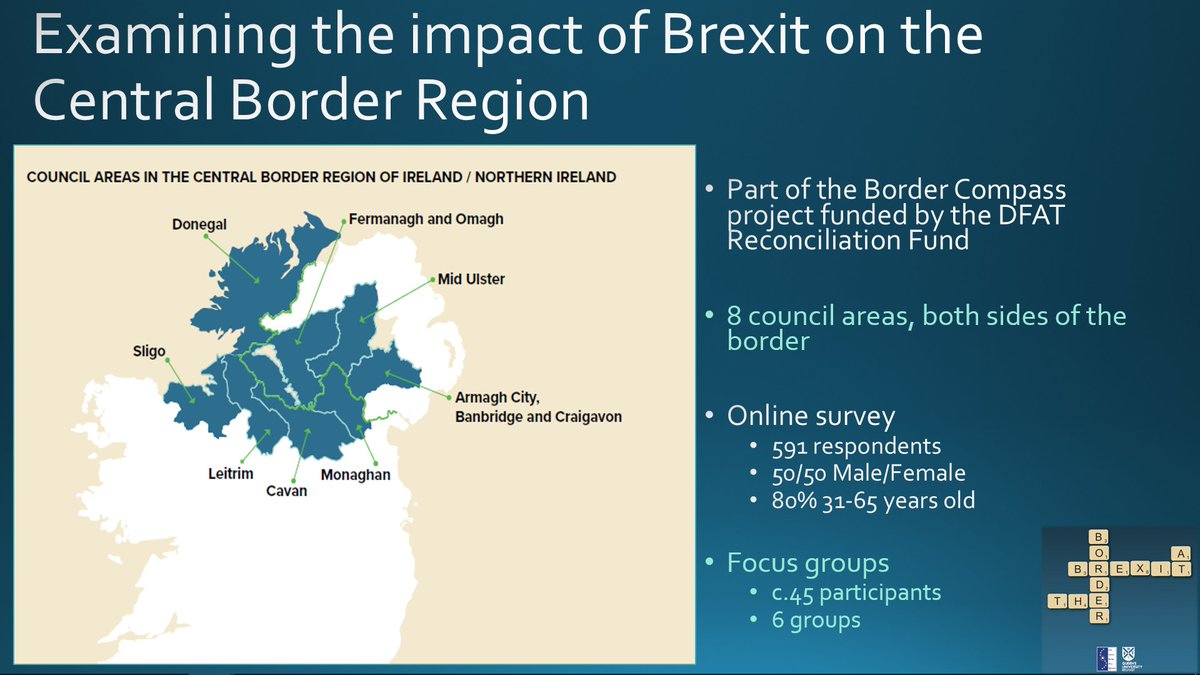
Respondents to the survey came from across the 8 local authority areas of the Central Border Region, moreorless equally from both sides of the border. 50/50 male/female. 80% 31-65 yrs.
There were far fewer Leave-voting respondents so they got extra attention in our analysis.
3/10
There were far fewer Leave-voting respondents so they got extra attention in our analysis.
3/10

Comparing Leave & Remain voters is interesting, tho wouldn't exaggerate the claims here (not intended as a representative quant study).
Leave-voting respondents less likely than Remain to anticipate a hard border, less likely to completely rely on services across the border
4/10
Leave-voting respondents less likely than Remain to anticipate a hard border, less likely to completely rely on services across the border
4/10
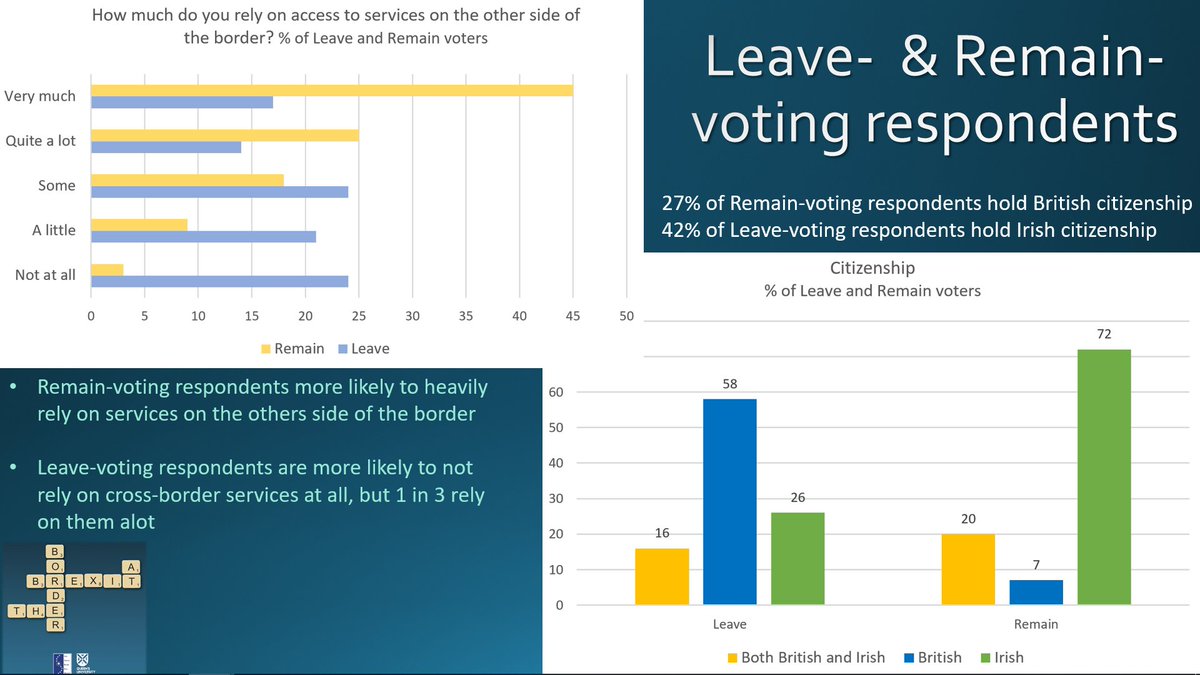
6 out of 10 respondents reported heavy reliance on access to services on other side of the border.
Survey & focus groups were full of examples of the cross-border nature of people's lives. This is what is missed with focus on trade. It's also why people fear a hard border.
5/10
Survey & focus groups were full of examples of the cross-border nature of people's lives. This is what is missed with focus on trade. It's also why people fear a hard border.
5/10

Brexit is already having impact in the Central Border Region.
The uncertainty is itself causing harm & raising anxiety.
When decisions are made, they tend not to benefit cross-border coop or border region devt.
Some positive effects reported, mainly re: devaluation of £STG.
6/10
The uncertainty is itself causing harm & raising anxiety.
When decisions are made, they tend not to benefit cross-border coop or border region devt.
Some positive effects reported, mainly re: devaluation of £STG.
6/10

People feel well informed about Brexit (more so than last year- see Bordering on Brexit report go.qub.ac.uk/bordering).
But they also feel more gloomy about likelihood of a hard border, which only a tiny few respondents say they wish to see (& for different reasons).
7/10
But they also feel more gloomy about likelihood of a hard border, which only a tiny few respondents say they wish to see (& for different reasons).
7/10
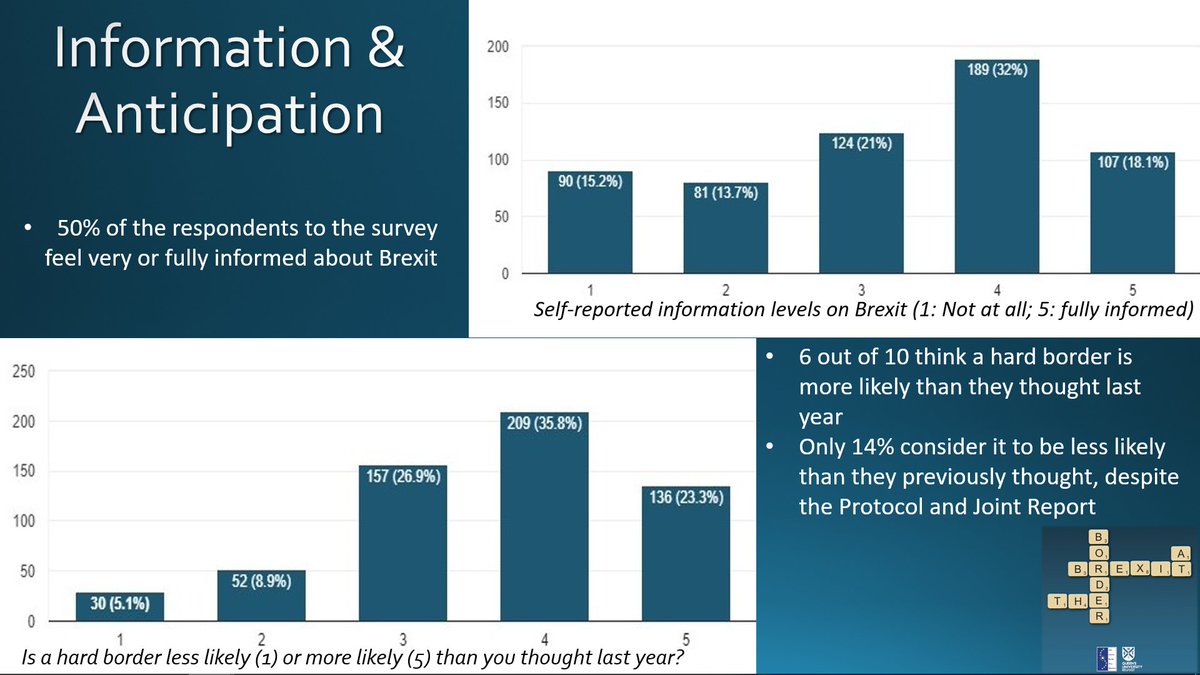
Of course, we asked about technological solutions.
1/2 said they wouldn't be willing to see these in place, even as alternative to manned checkpoints. Some expressed pragmatism (esp Leave voters); others raised deep concerns about surveillance & straight-up ineffectiveness.
8/10
1/2 said they wouldn't be willing to see these in place, even as alternative to manned checkpoints. Some expressed pragmatism (esp Leave voters); others raised deep concerns about surveillance & straight-up ineffectiveness.
8/10

Concerns about technology, infrastructure & any 'hardening' of the border are not just about avoiding making targets for violence.
Many try to explain how the practical, ordinary & symbolic aspects of Peace in this region are interlinked with current openness of the Border.
9/10
Many try to explain how the practical, ordinary & symbolic aspects of Peace in this region are interlinked with current openness of the Border.
9/10

Representation: c. 1/2 of respondents, no matter their background, have a fairly negative view re: representation of the Border Region in the Brexit negotiations.
Remain-voting respondents are much more anxious about this. Some have suggestions as to what might be done.
10/10
Remain-voting respondents are much more anxious about this. Some have suggestions as to what might be done.
10/10

• • •
Missing some Tweet in this thread? You can try to
force a refresh


